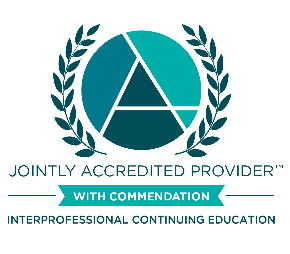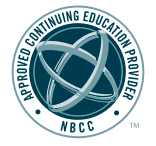A Resource for Healthcare and Social Services Professionals
July 20, 2023
9:00 am–10:00 am ET
This one-hour course is intended to provide foundational knowledge of stimulant use disorders as well as an overview of evidence-based interventions.
Via Zoom
This one-hour course is intended to provide an overview of stimulant use disorders. Topics include stigma; pharmacology and physiology of methamphetamines and cocaine; identifying stimulant overdose (overamping); managing acute stimulant intoxication; de-escalation techniques; and evidence-based treatment for people with stimulant use disorders.
This training will be held via Zoom. We would prefer that you log in using a device with a webcam so that we can all connect via video. If you do not have access to a webcam, please let us know. Individuals who are registered and attend the entire duration of the course will receive a copy of the materials at the conclusion of the training.
Medical providers, nurses, social workers, Licensed Alcohol and Drug Counselors (LADC), Certified Alcohol/Drug Counselors (CADC), Community Health Workers (CHW), recovery coaches, counselors, Licensed Mental health Counselors (LMHC), and members of the community.
Justin is a clinical nurse educator with Boston Medical Center's Grayken Center for Addiction Training and Technical Assistance, where he contributes to peer-reviewed publications, evidence-based clinical guidelines, development and delivery of continuing education programs, and other resources for providers supporting patients with substance use disorders. Justin is also a nurse practitioner at Boston Medical Center and the nursing director of two housing first programs operated by the Justice Resource Institute, Inc. He has expertise in infectious diseases and their co-occurrence with substance use disorders, community outreach, and harm reduction. Justin's work in HIV/AIDS includes being president of the Boston Chapter of the Association of Nurses in AIDS Care, consulting for the New England AIDS Education Training Center, and other positions. He currently sits on the stimulant work group for the Opioid Response Network (ORN), the advisory board of the New England Addiction Technology Transfer Center, and the item writing committee for the Addictions Nursing Certification Board (ANCB). Justin received his Bachelor of Science in Nursing (BSN) from Northeastern University in 2013, his Master of Science in Nursing (MSN) from the University of Massachusetts-Dartmouth in 2020, and his Post-Master's Family Nurse Practitioner certificate from the University of Massachusetts-Boston in 2023. He also holds certification as a Certified Addiction Registered Nurse (CARN) through the Addictions Nursing Certification Board (ANCB), certification as an AIDS Certified Registered Nurse (ACRN) through the HIV/AIDS Nursing Certification Board (HANCB), and is a certified nurse educator (CNE) through the National League of Nursing.
Kristin Wason, MSN, NP-C, CARN (she/her)Kristin is a Nurse Practitioner at Boston Medical Center and Assistant Professor of Medicine at Boston University School of Medicine. Kristin has been working in addiction medicine since 2009 - initially practicing as a Registered Nurse within BMC's multidisciplinary OBAT clinic, managing a large caseload of patients with substance addiction, and now as a Primary Care Provide. In addition to her clinical practice, Kristin advises and supports community health centers on integration of best practices for treating substance use disorders into institutions across Massachusetts and nationwide. Kristin earned her MSN, Adult-Gerontology Nurse Practitioner, degree from Salem State University. She is board certified in addictions nursing through the Addictions Nursing Certification Board.
Following this training, participants will have the knowledge necessary to:
Boston Medical Center Grayken Center for Addiction TTA, Massachusetts Department of Public Health, Bureau of Substance Addiction Services (DPH/BSAS), Opioid Response Network (ORN)
Funding for this initiative was made possible (in part) by grant no. 1H79TI083343 from SAMHSA. The views expressed in written conference materials or publications and by speakers and moderators do not necessarily reflect the official policies of the Department of Health and Human Services; nor does mention of trade names, commercial practices, or organizations imply endorsement by the U.S. Government.
 In support of improving patient care, Boston University Chobanian & Avedisian School of Medicine is jointly accredited by the Accreditation Council for Continuing Medical Education (ACCME), the Accreditation Council for Pharmacy Education (ACPE), and the American Nurses Credentialing Center (ANCC), to provide continuing education for the healthcare team.
In support of improving patient care, Boston University Chobanian & Avedisian School of Medicine is jointly accredited by the Accreditation Council for Continuing Medical Education (ACCME), the Accreditation Council for Pharmacy Education (ACPE), and the American Nurses Credentialing Center (ANCC), to provide continuing education for the healthcare team.
Boston University Chobanian & Avedisian School of Medicine designates this live activity for a maximum of 1.00 AMA PRA Category 1 Credit(s)™. Physicians should claim only the credit commensurate with the extent of their participation in the activity.
Boston Medical Center grants 1.00 hours to all nurses who attend and complete the evaluation. Boston Medical Center is approved as a provider of nursing continuing professional development by American Nurses Association, Massachusetts, an accredited approver by the American Nurses Credentialing Center’s Commission on Accreditation.
As a Jointly Accredited Organization, Boston University Chobanian & Avedisian School of Medicine is approved to offer social work continuing education by the Association of Social Work Boards (ASWB) Approved Continuing Education (ACE) program. Organizations, not individual courses, are approved under this program. Regulatory boards are the final authority on courses accepted for continuing education credit. Social workers completing this course receive 1.00 general continuing education credits.

BMC Grayken Center of Addiction TTA has been approved by NBCC as an Approved Continuing Education Provider, ACEP No. 7188. Programs that do not qualify for NBCC credit are clearly identified. BMC Grayken Center of Addiction TTA is solely responsible for all aspects of the programs. For this program, 1.00 contact hours will be offered to participants who attend the training and complete the evaluation.